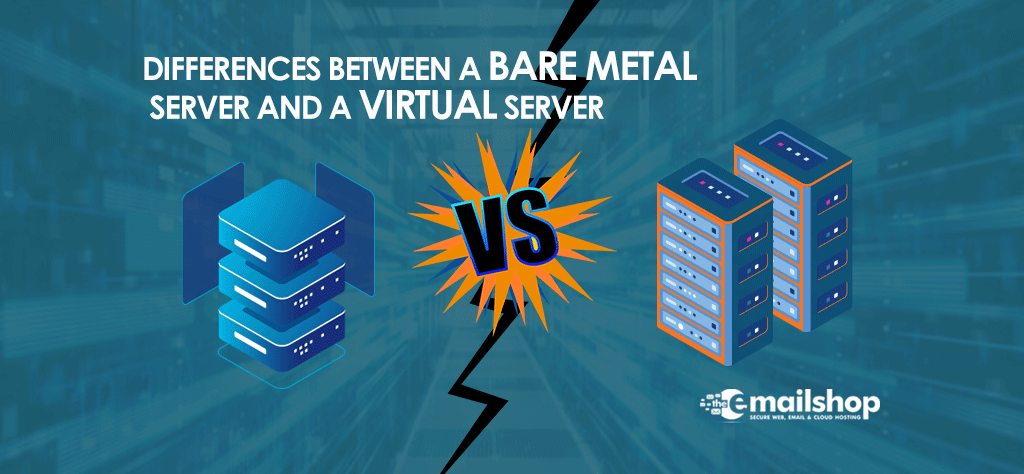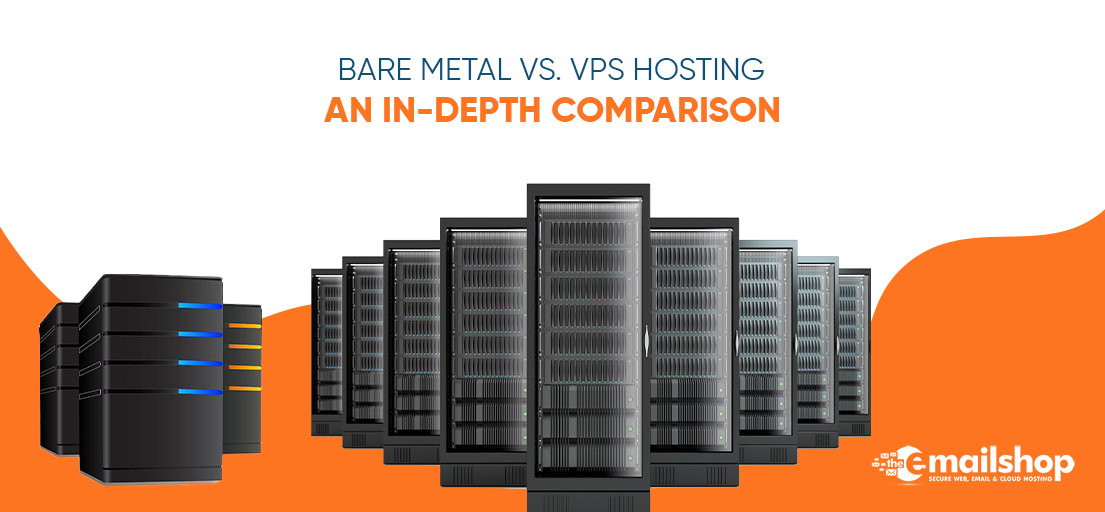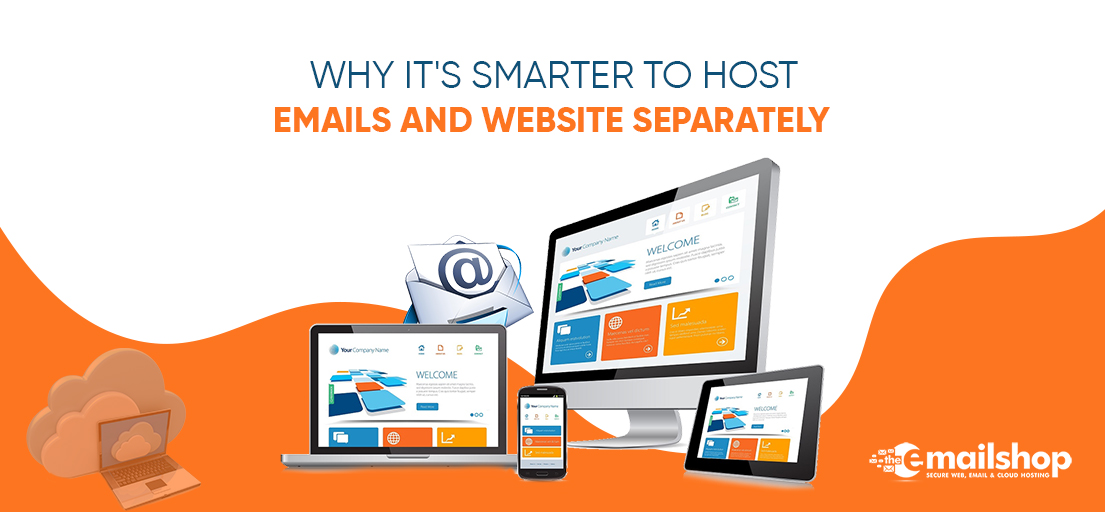There are many different alternatives accessible to you when picking a server hosting plan. Virtual private server hosting and bare metal server hosting, which are sometimes known as dedicated server hosting and VPS hosting, are two of the most frequent forms of hosting. However, it may be difficult to choose which alternative is most suitable for your requirements since each possibility has its own set of benefits and drawbacks to offering. Bare metal servers, as opposed to virtual ones, often have more power, security, and control, and they also perform more consistently.
On the other hand, virtualized servers are more agile and dynamic, and they provide IT teams the ability to quickly spin up or shut down new test environments or other temporary workloads.
After reading this article, which compares and contrasts a bare metal server with a virtual server, you will have a better understanding of the key differences between the two types of servers, allowing you to make a more informed decision about which alternative will meet your requirements regarding the infrastructure.
What exactly is a “bare metal server”?
A physical computer that is devoted to the needs of a single customer, is often known as a tenant. When using a solution for hosting a server that is dedicated to a single tenant, that tenant has complete control over the server’s performance, security, and configuration at all times, and they do not have to share the server’s resources with any other tenants. There is just one tenant on the server, so all of its resources, including network resources, are made available to them exclusively.
The operating system (OS) of traditional bare metal servers, such as Ubuntu VM host, is installed directly onto the bare metal or hard drive of the computer’s hardware. This is in contrast to virtual private servers, which store their OSes on separate drives. This is known as a “root file system” installation. Alternately, the hosting business may make use of a piece of software known as hypervisor virtualization to create a virtual layer superimposed on the host server in order to operate a virtual server that is hosted on the host. A bare metal hypervisor provides the same level of safety and performance as other kinds of hypervisors, in addition to the benefits associated with cloud computing.
What exactly is a Virtual Private Server, abbreviated as “VPS”?
A cloud virtual private server (VPS) is a form of the virtual operating system meant to give resources to other kinds of virtual servers. A VPS works like a real server and has the same kinds of functions and features as a real server.
A virtual private server (VPS) makes use of a parent server to host many virtual servers that are isolated from one another. This kind of setup is typical for more manageable workloads that need continuous performance. Even though the virtual servers are totally separated from one another, they could share networking resources, which might lead to difficulties with noisy neighbors if one of the VPS tenants is having unusual challenges.
What are the Key Differences Between Virtual Private Server Hosting and Bare Metal Hosting?
Traditional bare metal systems are physical servers with a single operating system directly installed on the hardware. These servers are dedicated to a single client and are devoid of software. The functionality of virtual private servers is comparable to that of physical servers. However, a single physical server may host a number of separate VPSs.
It is essential to have an understanding of the function of a hypervisor within the context of virtualization in order to comprehend a virtual private server. One of the many kinds of virtualization is known as a hypervisor, which is also sometimes referred to as a virtual machine monitor (VMM). By separating the software from the hardware on a bare metal server, the software layer in question can create and run virtual machines, which are also called VMs, guest machines, or virtual instances.
You Might Also Like to Read: How Does VPS Hosting Supplement Your Website SEO?
Benefits of Hosting on Bare Metal Servers
The fact that bare metal server hosting provides a completely customized foundation for a single tenant makes it superior to virtualization in a number of respects, including the following:
-
Isolated Environments
A bare metal server enables a single tenant to use one hundred percent of all of the server’s resources at any one moment, which boosts overall performance and reduces the amount of time the server is down. The data, programs, and resources on a bare metal server are never shared with any other tenants. This is because the server is fully private.
-
Increased processing power
Many bare metal server hosting providers let clients choose the latest CPU, RAM, and SSD models (SSDs).
-
Fully Customizable Configuration
This includes tailoring your hardware resources, operating system, control panel, and software to your specific needs.
-
Compatibility with Security Add-Ons
Compatibility exists between bare metal servers and advanced security methods, such as standard hardware firewalls. This feature is referred to as compatibility with security add-ons. This method gives you more security than hosting on a shared server or a virtual private server.
-
Charges That Are Easy to Estimate
Hosting services that provide bare metal servers may charge you with predictable monthly charges depending on your requirements and the setup of your server.
Drawbacks to Bare Metal Server Hosting
Traditional bare metal server hosting comes with a number of benefits that aren’t available anywhere else, but it also has a few drawbacks that mean it’s not the best option for everyone. The following are some of the most frequent:
-
Server Setup Knowledge
To configure a bare metal server, you must have knowledge of server setup, extensive planning and administration, and an awareness of the necessary resources. Some organizations that host websites on bare metal servers also provide extensive management and maintenance services, whilst others supply just the server, an Internet connection, and basic support services.
-
Exorbitant Costs
A bare metal server is usually more costly than a virtual server since there is no cost sharing involved in the process. This shows that a single customer is responsible for all server operating costs. As a result, bare metal servers, particularly those with complicated processing components, are often used for database hosting, hosting multiple websites, and cloud private networking.
-
Providing Additional Time
Provisioning and deploying a physical server requires more time than installing a VPS.
-
Discrepant Scalability
If you realize that you need more processing power than your initial bare metal server can give, you may be obliged to upgrade to a more sophisticated server, resulting in downtime during the conversion. If you require more processing power than your initial bare metal server provides, this is the situation.
Benefits to hosting on a virtual private server
Virtual private server hosting, which is effectively the same as renting a section of a bare metal server, has a number of benefits, including the following:
-
Scalability and Agility
A virtual private server (VPS) is highly scalable because it enables a tenant to simply add or remove server resources (such as CPU cores, memory, and disk space) in accordance with the tenant’s changing requirements. A virtual private server (VPS) also has a high degree of adaptability and portability. This is because it gives tenants the ability to seamlessly migrate across multiple host servers dependent on the networking, memory, storage, or processing needs that they have, all while experiencing minimum downtime.
-
Some customization
A Virtual Private Server (VPS) hosting solution enables a tenant to activate, disable, install, and uninstall software, as well as modify software settings to match the demands of their particular organization. In addition, this kind of hosting does not often place restrictions on the tenants about the software that they are able to use in their own environments.
-
Lower Costs
One of the primary advantages of using a virtual private server (VPS) hosting solution is that it gives customers more control over their expenses. This is due to the fact that service providers only charge customers for the number of server resources used during each billing cycle.
-
Instant Provisioning
Virtual private servers (VPS) enable immediate deployment in contrast to bare metal servers, enabling tenants to easily set up or shut down new environments for testing or other temporary workloads.
Drawbacks of Using a Virtual Private Server as Your Hosting Solution
Because of its multi-tenant nature, VPS hosting has certain drawbacks in comparison to bare metal server hosting, including the following:
-
The Hypervisor Fee
A hypervisor virtualization software layer is necessary to construct and run a virtual private server (VPS), and this necessity imposes a performance fee on the server. This implies that installing and using a hypervisor restricts the number of physical server resources and may result in latency, which is the delay between the time a request is sent and when it is processed. A layer of hypervisor software exists between a Virtual Private Server (VPS) and the computer’s physical resources, preventing VPSs from having direct access to the server hardware. This limitation is set by the software hypervisor. In addition, this may cause a delay.
-
The Loud Neighbor Effect
Multiple virtual private servers (VPSs) using the same physical computing resources may result in a “noisy neighbor” effect for some tenants. For instance, if one tenant is running an application that requires a significant amount of server resources, those server resources will be allocated to the VPS running the application that requires a significant amount of server resources. This could slow down the performance of other tenants.
-
Fewer available hardware configurations
The majority of hosting companies restrict the extra settings that may be chosen for virtual private servers. This includes the hardware options. These choices are often determined by the platform that is used to host the VPS servers, and it is possible that they will not satisfy the requirements of any individual client.
What to Consider When Choosing Between a Bare Metal Server and Virtualization
It is essential to give careful consideration to your requirements before settling on either conventional bare metal or virtual server hosting for your website. Bare metal server hosting is often selected by the majority of rapidly expanding enterprises that are engaged in the retail, healthcare, or financial industries.
The efficiency of this hosting option is a major selling point for many businesses, and it also satisfies stringent requirements pertaining to privacy and safety. A hosting solution that utilizes virtual servers is often a viable option for smaller companies that do not demand top-tier performance levels or tight privacy and security laws. In other words, these types of companies are a good match for the solution.
For Discount and Offers, Visit our Official Twitter Page









